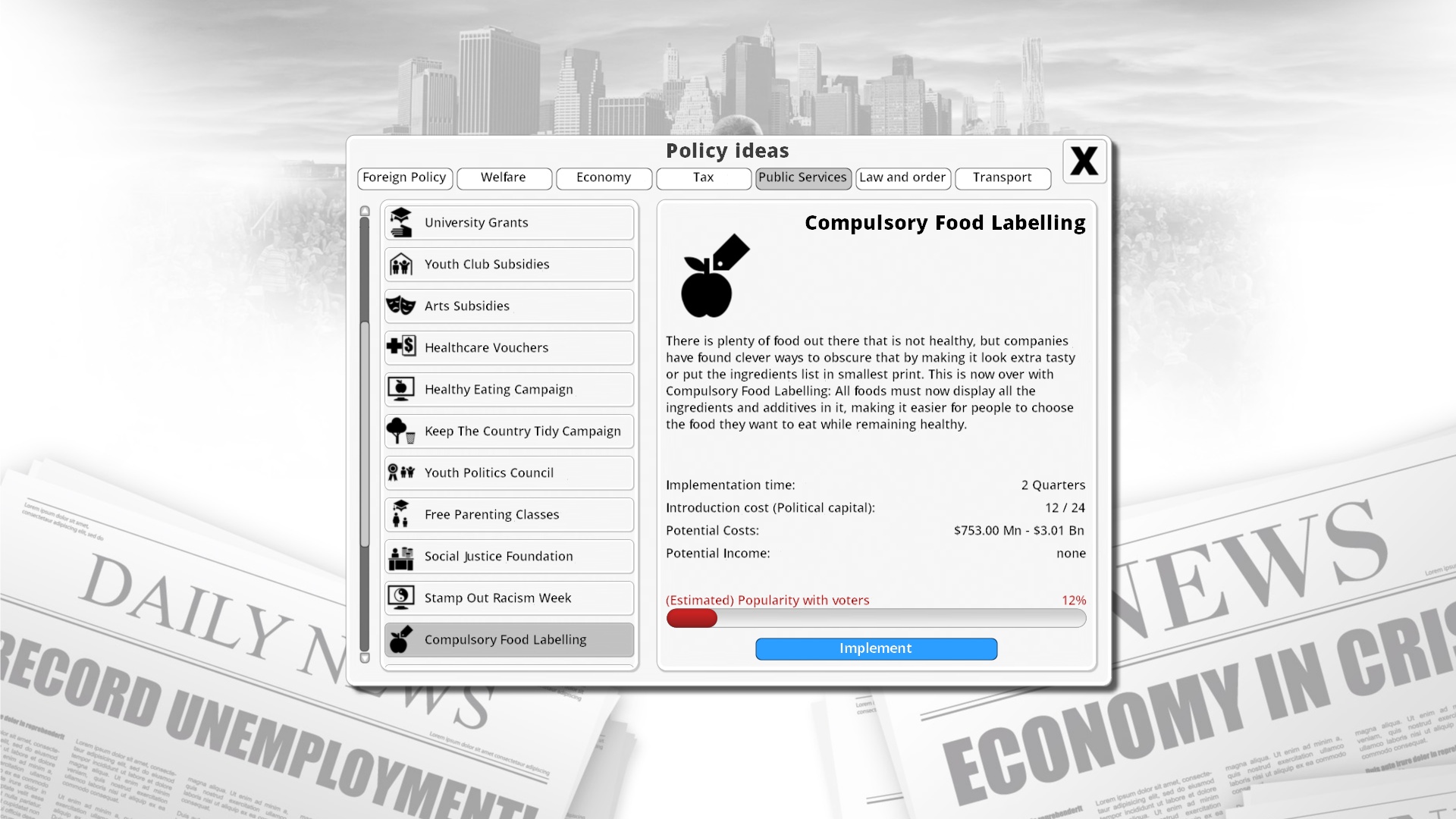

And by doing so, I proved a number of things to myself. Again, that is the goal when playing as the President of the United States - there are five other counties that can be played: United Kingdom, France, Germany, Australia, and Canada.Īs to how well I did in the job of POTUS, well, I lost.

At the end of the term, whether you won or lost is decided at the polls - the goal of the game is to get re-elected to a second term. Each turn covers a span of three months, so there are sixteen turns in a game (for the US cycle of presidential elections every four years). Unused capital appeared to carry over into the next round, although without know precisely how said capital is earned, it was hard to tell if all of the remainder was preserved or just some of it. Not surprisingly, controversial changes like drug legalization or tax increases cost a lot of political capital, while less contentious decision cost little. Democracy 3.0 is a turn-based game, with each turn being comprised of as many policy changes that can be accomplished with that round’s account of political capital. All of the bribing, finagling, threatening, court packing, unconstitutional Executive actions/inactions, and media spinning required to pass any kind of meaningful reform is distilled down into a single currency: political capital.

While the scope of control is fairly complex, the method for managing it is notably easier than in real life. It is frightening, in a way, and that is probably intentional. If nothing else is accomplished by this, it adequately demonstrates the immense breadth and depth of control that has been seized by the Federal Government.
DEMOCRACY 3 TUTORIAL SERIES
It also enables a series of red or green arrows showing the dependencies amongst the disparate items. Hovering the mouse cursor over a given policy or metric opens a pop-up box describing what it is. It is apparent that quite a bit of thought went into finding a way to keep a very complex and dynamic game approachable to the new and/or casual user. The user interface initially looks to be insurmountably complex, but it didn’t take too long to start to understand how it works and how each of the actions/reactions work together. Trust me, after surviving four assassination attempts in my first (and only) term as President of the United States, I know of what I speak. And just so you know, some of them are very angry. In other words, each potential voter is a unique individual that will respond differently to changes in policy. Citizens in these groups are also subdivided into additional voting blocs such as Smokers, Drinkers, Retirees, State Workers, and many, many more. The population is divided into cliques such as Patriot, Liberal, Capitalist, Socialist, etc. Adjusting a policy in one realm can influence global measurements such as GDP, debt, and tax revenue as well as localized measurements such as homelessness, alcoholism, and dozens of other things in other realms.Įach and every change to a policy can also change how the populace views your administration. Just as I am the only person in this country that knows the proper way to drive, I am also unique amongst my fellow citizens in knowing precisely what needs to be done to fix our country.ĭemocracy 3.0 starts out with a tutorial that attempts to explain the complexity of the user interface and the ways in which each political action/policy causes one to many reactions in broadly categorized realms such like Law & Order, Economy, Welfare, Foreign Policy, etc. And I am here to tell you, they are all wrong. Everyone, everyone, seems to know how things should be done, how problems should be fixed, and that anyone who believes differently from, them is evil, stupid, or in many cases, both. If you don’t believe me, simply check out the reader comments section on just about any political news site or blog. While most folks have no direct experience in actual tank battles and are even less likely to have ever participated in a space battle, pretty much everyone thinks that they know how a democratic republic should be run. Name aside, the idea behind the game itself was sufficient to pique my interest in taking a look at a preview release. Despite its sibling status with the ‘Gratuitous’ games, this one will carry the relatively uninspiring name Democracy 3.0. Positech, creator of intriguingly named games such as Gratuitous Tank Battles and Gratuitous Space Battles, is posed to deliver the third version of their Political Strategy game, Democracy.


 0 kommentar(er)
0 kommentar(er)
